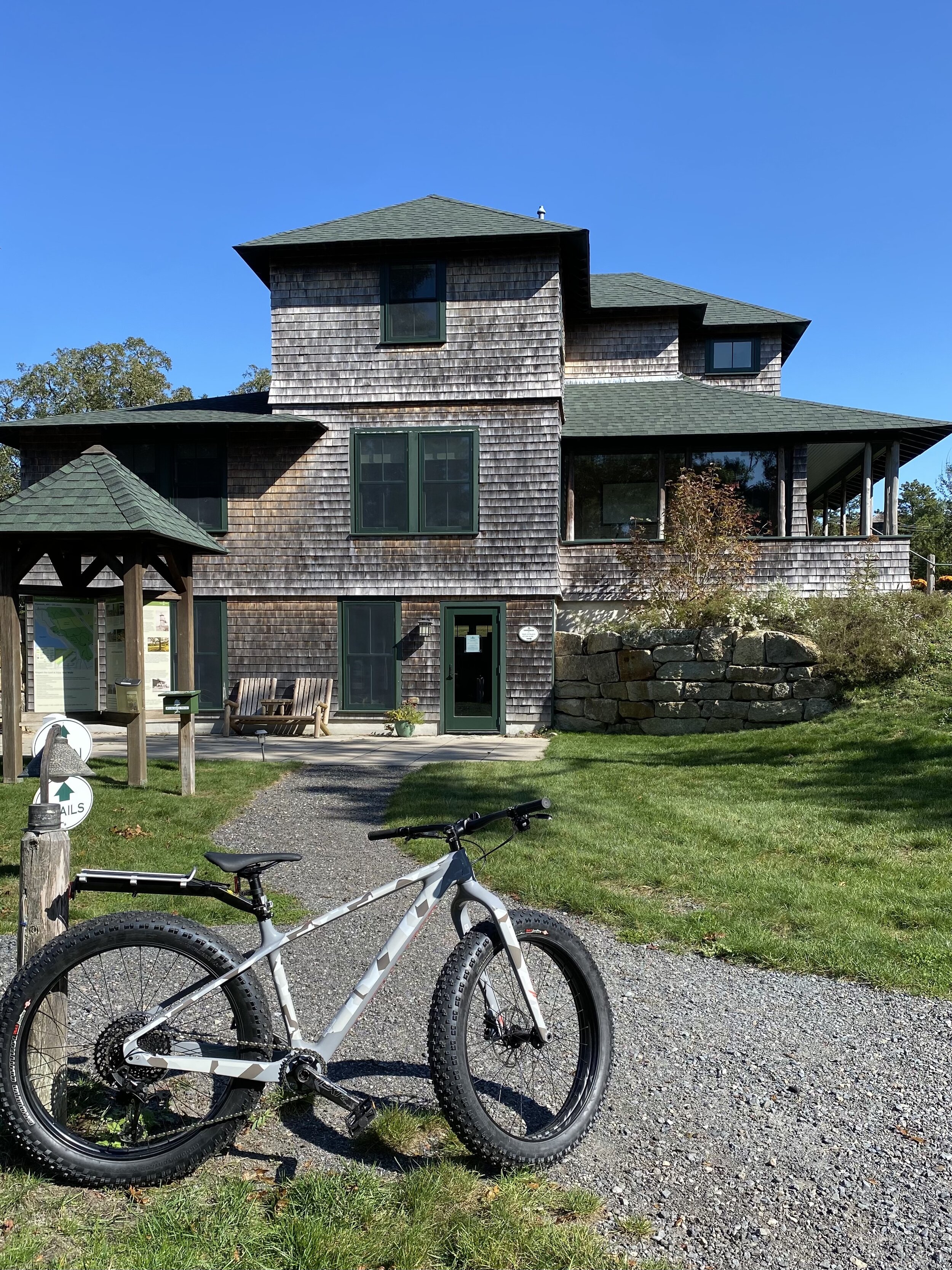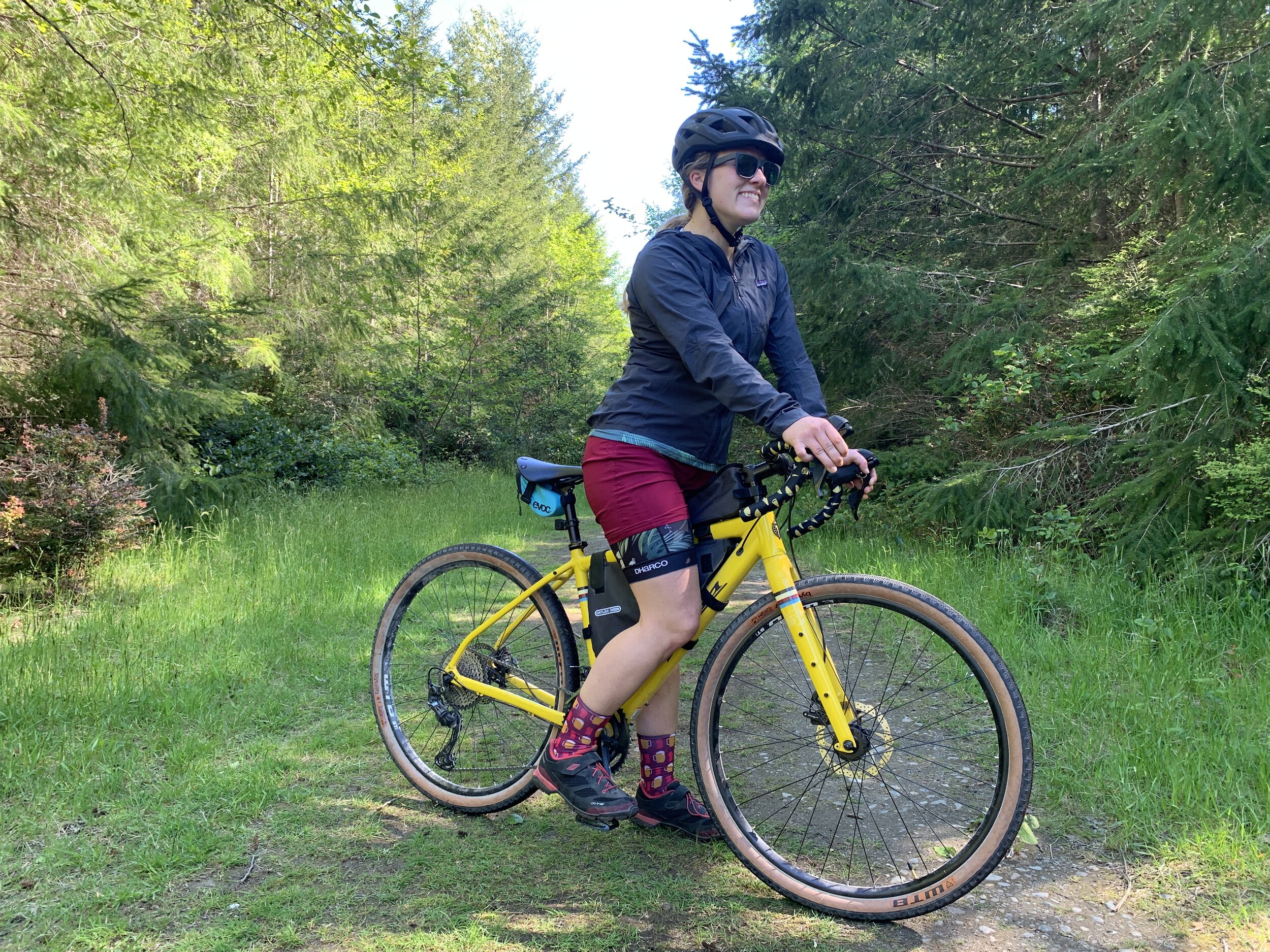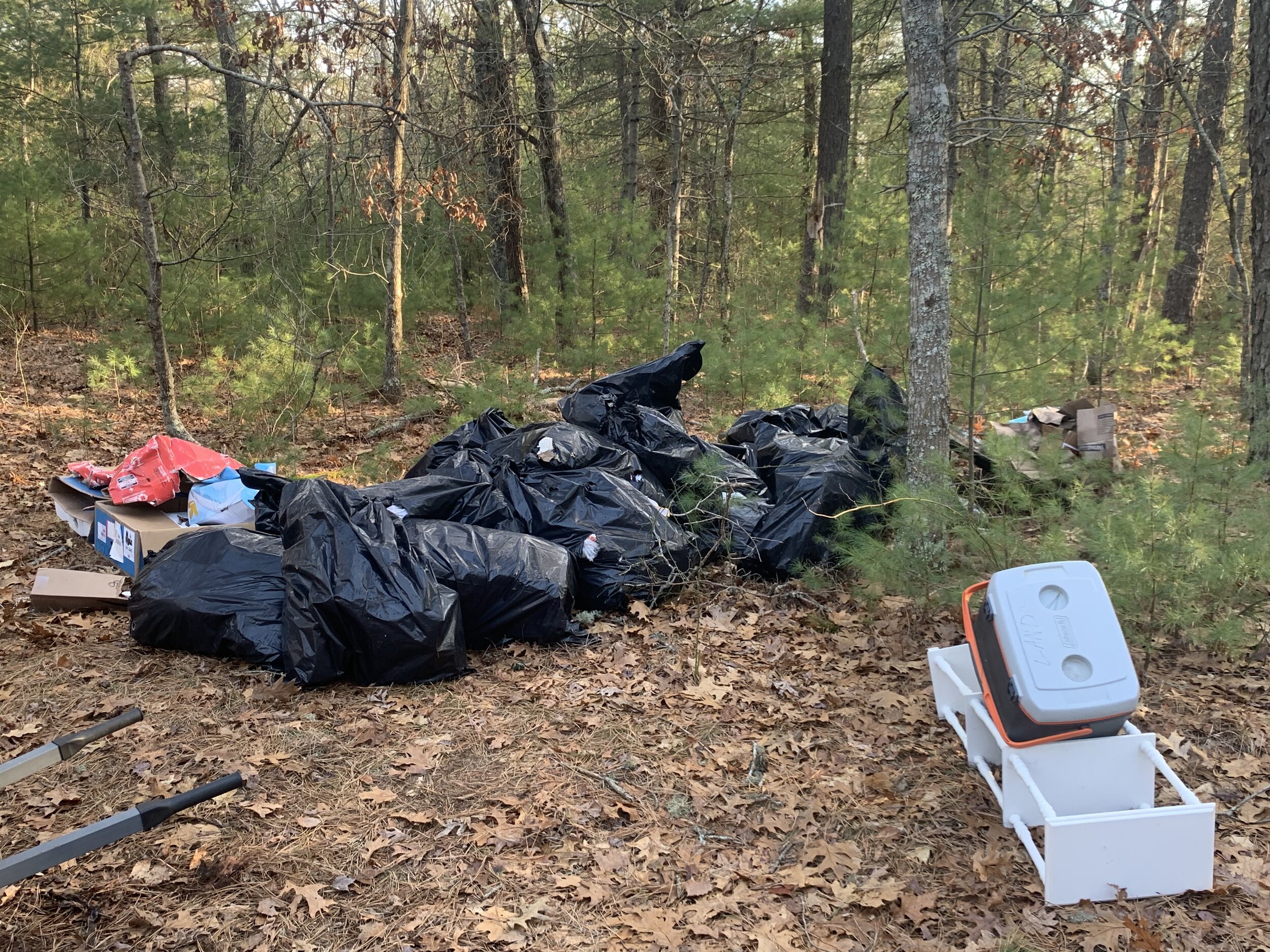In 2011, when Wildlands Trust set out to transform the Davis-Douglas Farm into the organization’s headquarters, there was a plan: break the project into several phases to ensure fundraising success. First was the site work, second was the old farmhouse restoration to serve as an office, and finally, phase 3 was the construction of the Community Conservation Barn for both events and the stewardship garage. But several years later, one visible piece was left unfinished.
In the middle of the field, at the top of the hill, lay the crumbling remains of what was once a working barn. Built in the 1890s, the old barn stood for nearly 100 years before it eventually just caved in. By the time Wildlands acquired the land, it was gone, and its beautiful, old foundation had the potential to become both a hazard and an eyesore. Knowing the value of preserving this historic artifact, Wildlands waited, and brainstormed, and waited some more. Then, in 2020 Karen Grey recruited local landscape designer Love Albrecht Howard to carry-out the new vision for the barn foundation.
The granite foundation walls would provide the perfect natural footprint for a pollinator-friendly, native perennial garden that could serve as a demonstration and teaching space for visitors to Davis-Douglas Farm. This was IT! The garden would beautify the office grounds, promote pollinator activity that is essential to maintaining native habitats, and it would be relevant to Wildlands’ mission and the needs of the community. The Davis-Douglas Farm transformation didn’t need just any structure to occupy this once-used space. It needed something with purpose and function, that would aid Wildlands in “providing the people of the region with the tools and support to build an enduring relationship with the land and water resources that are vital to our future,” as outlined in our strategic plan. What better way to fulfill this intention than by modeling and teaching others how they, too, can play an active role in the care and protection of the environment in their own living spaces?
With a plan in place, the work began in May 2020. To start, Wildlands enlisted the help of Jerry Richmond and his team, who were important partners throughout the renovation at our new headquarters. With Jerry’s help, the necessary structural changes were made: the foundation was filled; the upper entrance and garden path were developed for accessibility; a section of the wall was removed to make room for handicapped parking; and the removed pieces of granite were repurposed to create both a picturesque stairway entrance from the lower field and bench seating in the garden.
Then, in November 2020, Love Albrecht Howard led a group of volunteers in planting the first of the perennials that would bring this vision to life. A variety of flowering native plants were selected with the help of Morrison’s Garden Center to showcase blooms throughout the year. Pollinator-friendly practices were also utilized in the garden’s creation. Among these practices, Wildlands’ gardener Kim Goggin pointed out in a previous interview, are planting a variety of heights, colors and flower shapes to attract different birds and insects; keeping plants in groupings to allow pollinators to move easily from one flower to another; and refraining from raking leaves or removing stalks before the spring warm-up to provide a safe space for various insects to survive the winter months.**
Some of the many native plants on display in the demonstration garden this year are swamp milkweed, orange butterfly weed, aster, black-eyed Susan, yarrow, Coreopsis, winterberry, cranberry viburnum, and bee balm. The carefully selected flora are hosts and/or providers of nectar for a plethora of caterpillars, bees, flies, wasps, butterflies and moths year round. And if you’ve had a chance to visit Davis-Douglas Farm this summer, you’ve seen how wildly successful our first year’s efforts have been!
A peak under the leaves of a milkweed plant in early summer often revealed the trademark yellow and black stripes of monarch caterpillars preparing for their upcoming transformations. In the heat of the summer sun, the steady hum of insects at work greeted visitors even before they stepped inside the foundation walls. A short trip down the garden steps to the lower field delighted the senses with a cascading waterfall of color in tiered plantings that bordered the natural staircase. And a moment’s pause among the flowers was sure to offer the delight of butterflies flitting from bloom to bloom in the stone enclosure. As we approach the end of this pollinator garden’s first year, we are happy to report that it is thriving!
In pursuit of our vision to bring this old foundation back to life, Wildlands continues to work toward creating a space that is not only productive for the environment but also educational for visitors. In August, our gardeners installed copper markers throughout the garden. These markers now provide a self-guided lesson in plant identification, with each plant's botanical name on the front and common name on the back. For those with some native species experience, this offers a fun test of knowledge and perhaps some new insight into scientific names. For those who are new to pollinator-friendly gardening, visitors now have the ability to see a variety of plants in person and instantly learn what they are--a living instruction manual for anyone looking to support pollinators in their own backyards.
As we begin to look ahead to colder temperatures and what comes next for the demonstration garden, Wildlands Trust is making plans to add other native species to our collection, and we hope to begin offering educational tours next spring!
**https://wildlandstrust.org/news-blog/2020/5/5/pollinator-friendly-spring-cleanup-for-your-garden

















